Matching snapshots
The names and stories behind street photographs are often lost with the passing of time, and we were unable to identify many of the people whose images are featured in the Street Photography exhibition. However, we’ve since learnt the moving story behind one image, of two curly-haired children (below).
Published in a newspaper article about the exhibition, the photo was spotted by a member of the public who had a very similar photo (right) in her own family album, showing her late father, Michael Finn.
The two photos clearly belong to the same sequence of images, captured by a street photographer outside Central Station in late 1939. In both photos, six-year-old Michael has a reassuring arm around his two-year-old sister Margaret; their mother was probably standing nearby, out of sight. It’s believed the close‑up photo was sent to a family friend; it later found its way to us in response to our public call-out for the exhibition. The Finns retained the other photo.
Just two of the many images the photographer undoubtedly snapped that day, these photos now hold a much greater significance than could have been anticipated at the time. The photos are possibly among the last images of Margaret, who was fatally injured in a road accident not long after, on 6 January 1940.
These inexpensive snaps, quickly captured and often impulsively purchased, have crept their way into family stories, sometimes just putting a face to a name but occasionally becoming an irreplaceable record of a lost loved one.
Published on
Street photography
Browse all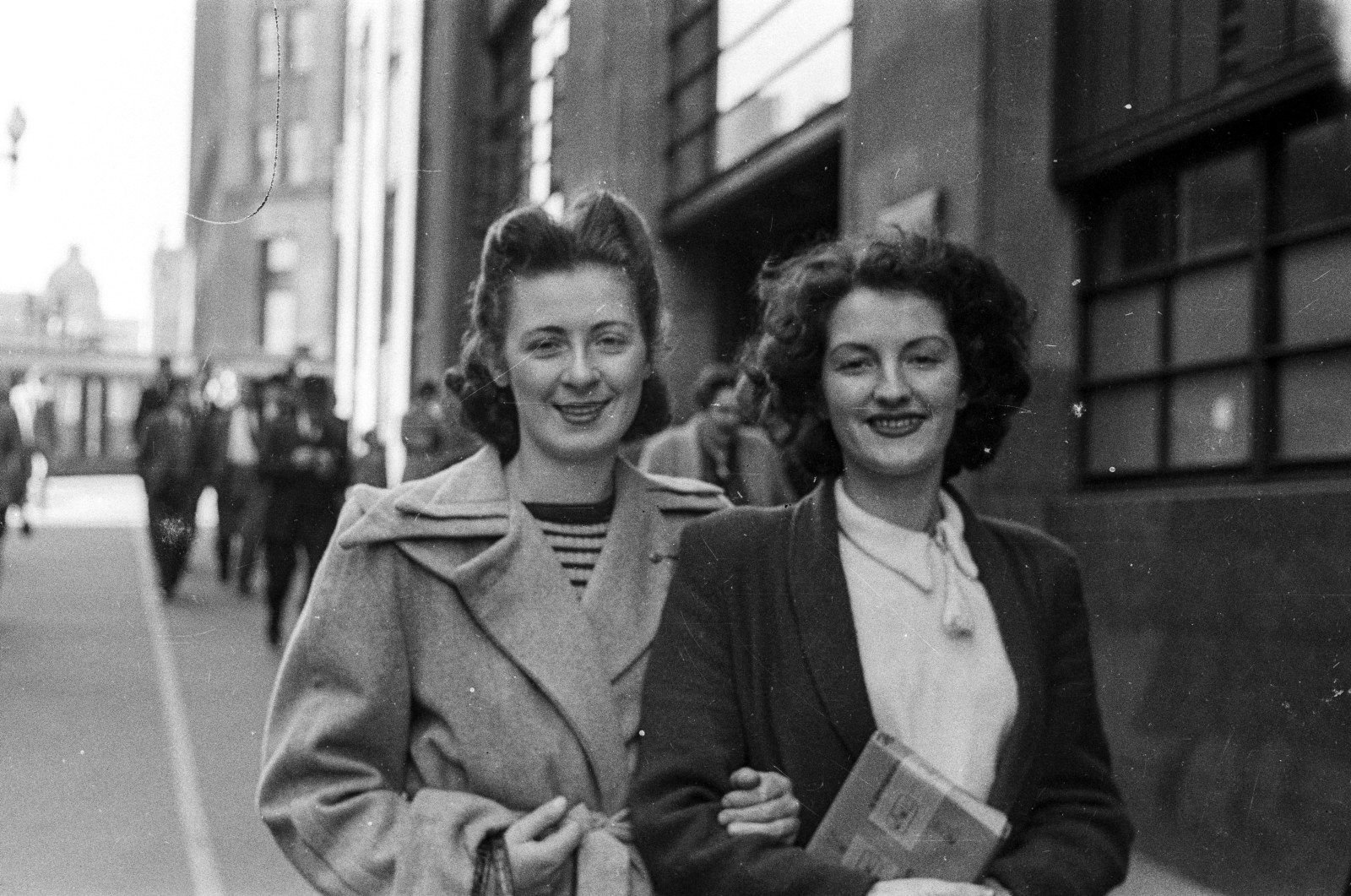
Ikon Studio: photo galleries
Browse a selection of images from the Ikon Studio collection shot between May and December 1950 in Martin Place, Sydney
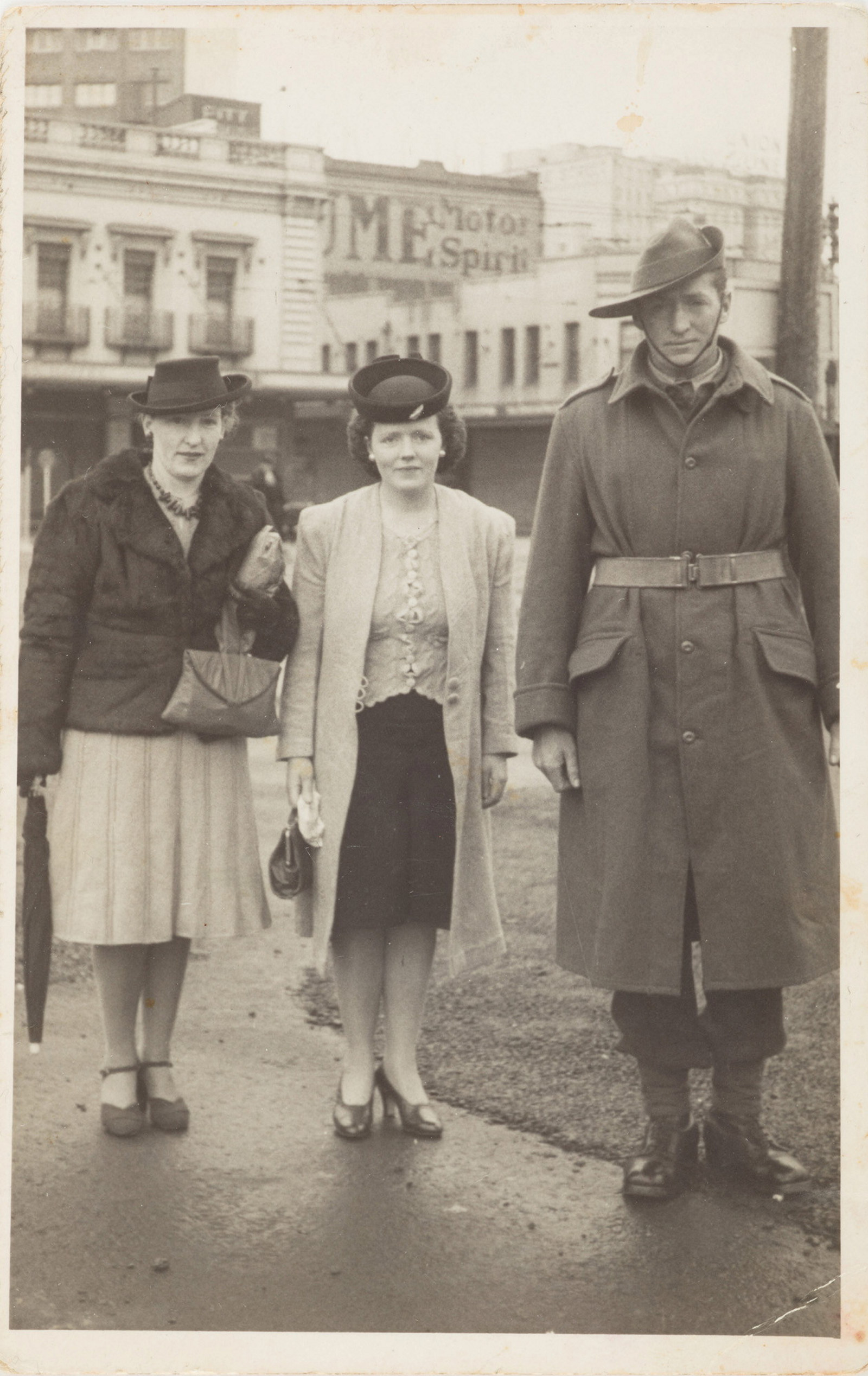
City of a million faces
The passing of years has given many street photographs greater significance than may have been anticipated when they were taken
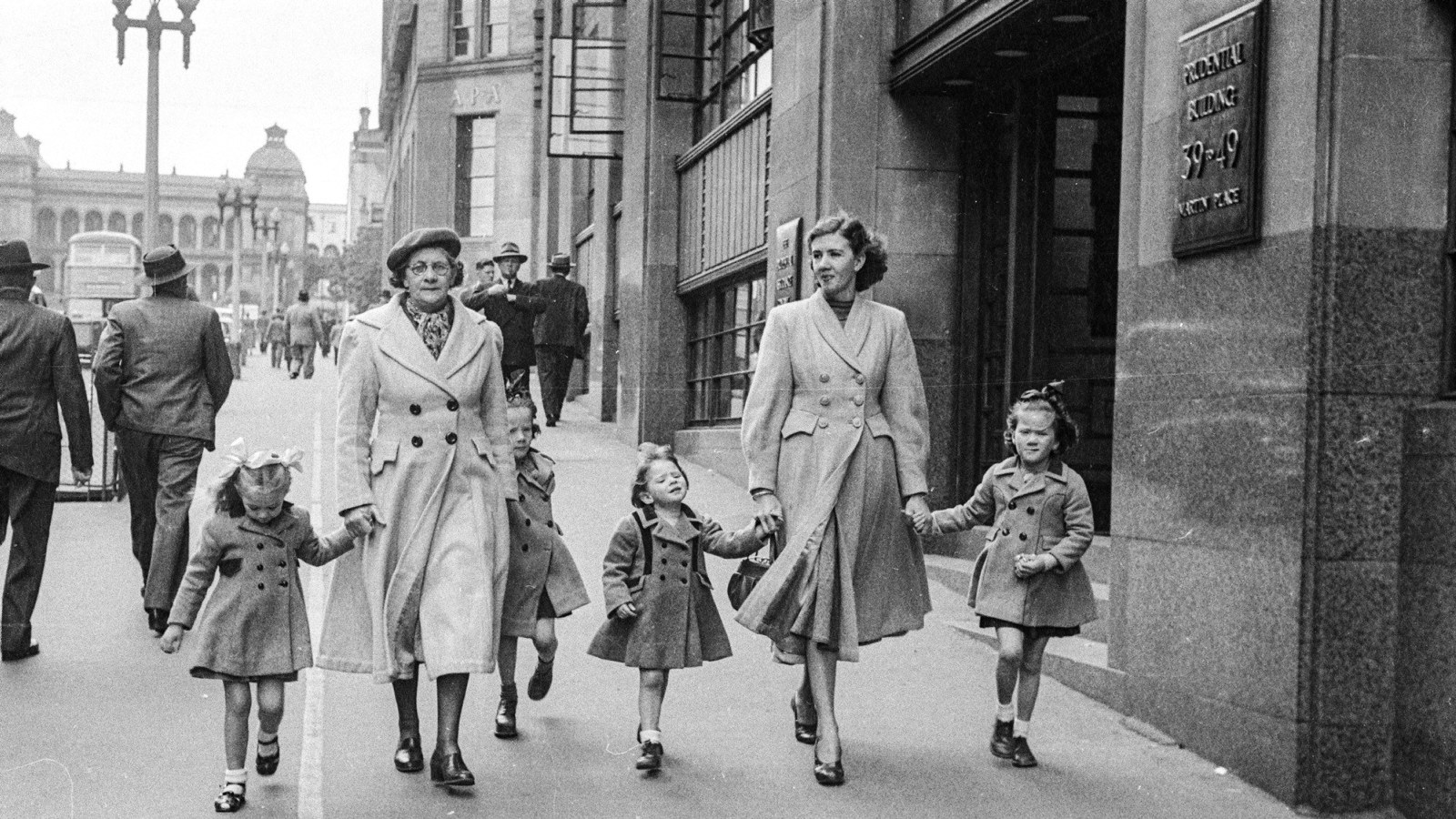
Ikon Studio
During the public call out for our Street Photography exhibition an extraordinarily rare collection of street photography negatives came to light. The Ikon Studio negatives provide a fascinating visual narrative of the street photographer at work
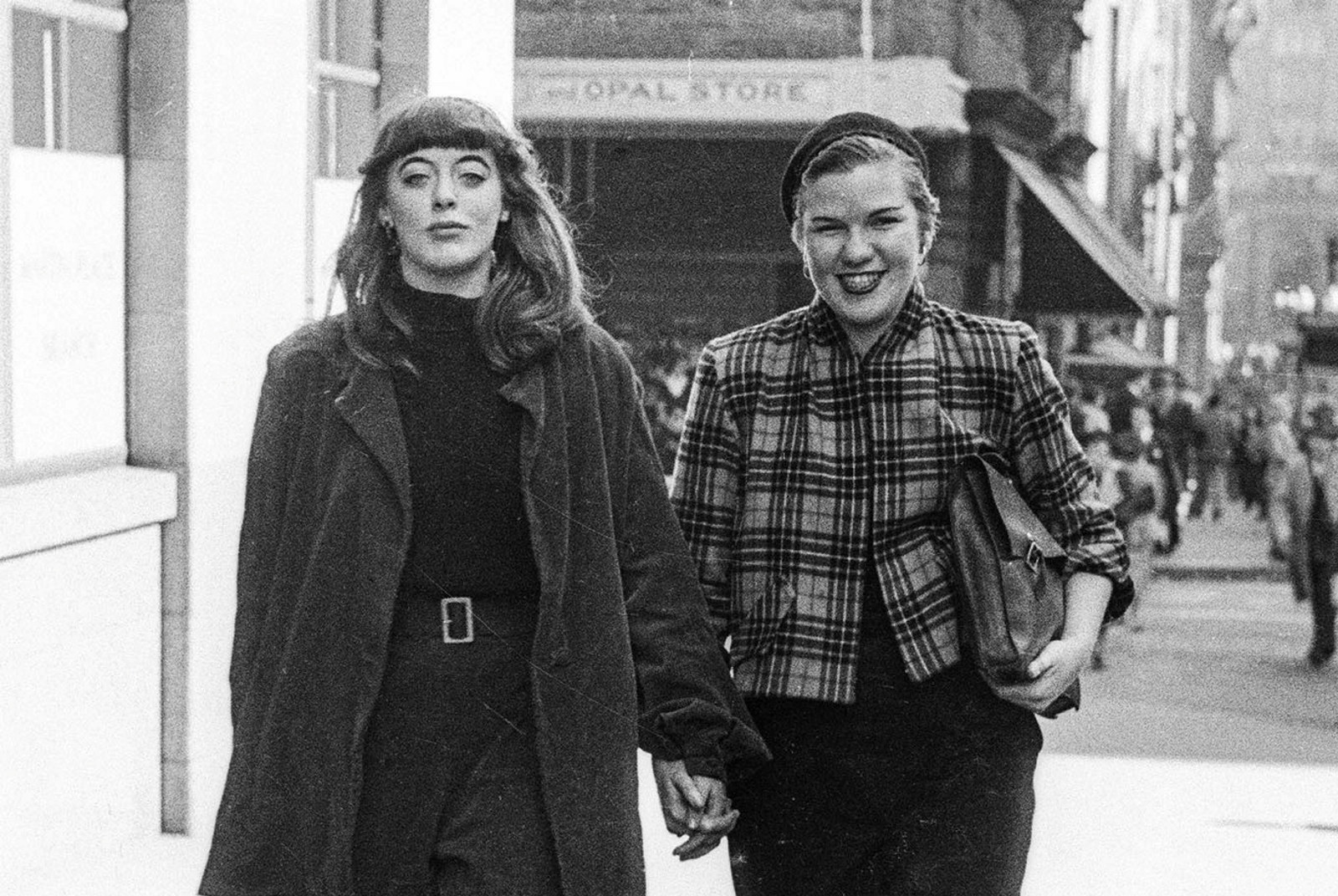
Vali Myers: teenage Ikon in street photograph
Two young women stride confidently, hand in hand, up Sydney’s Martin Place on a sunny winter’s day in 1950

The street snapshot craze
Picture this: you and a friend are walking down a city footpath amid the lunchtime crowd. Suddenly a smiling man in a suit and tie with camera in hand steps forward and offers you a card. It reads: Your photograph has just been taken
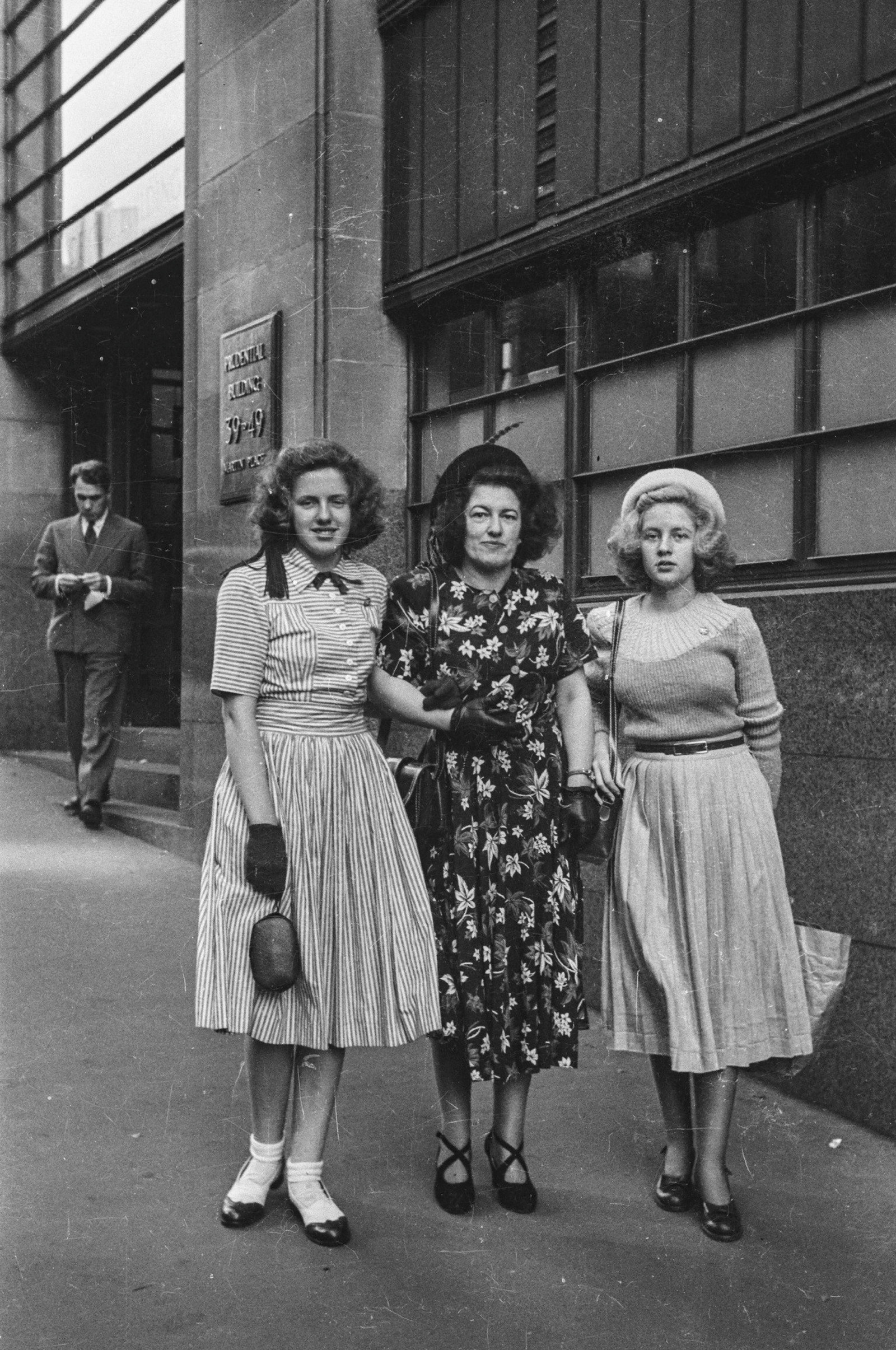
Family photo reunion
Imagine visiting an exhibition and discovering a photograph of yourself and your family that you had never seen before
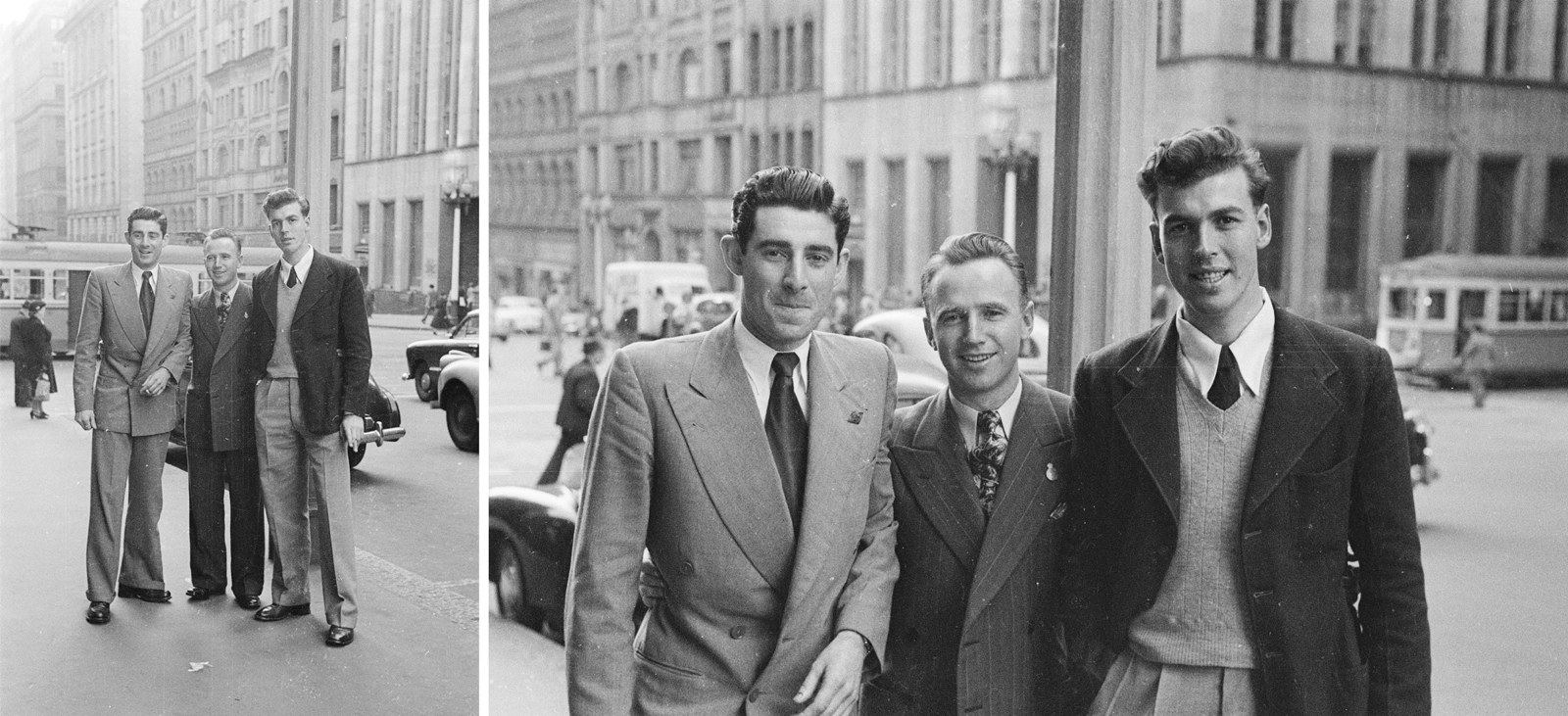
Snapped! The Ikon Studio street photographer at work
A remarkable acquisition of 5000 street snaps provides a lively and revealing record of one Sydney street in 1950 and offers a rare glimpse through the street photographer’s lens
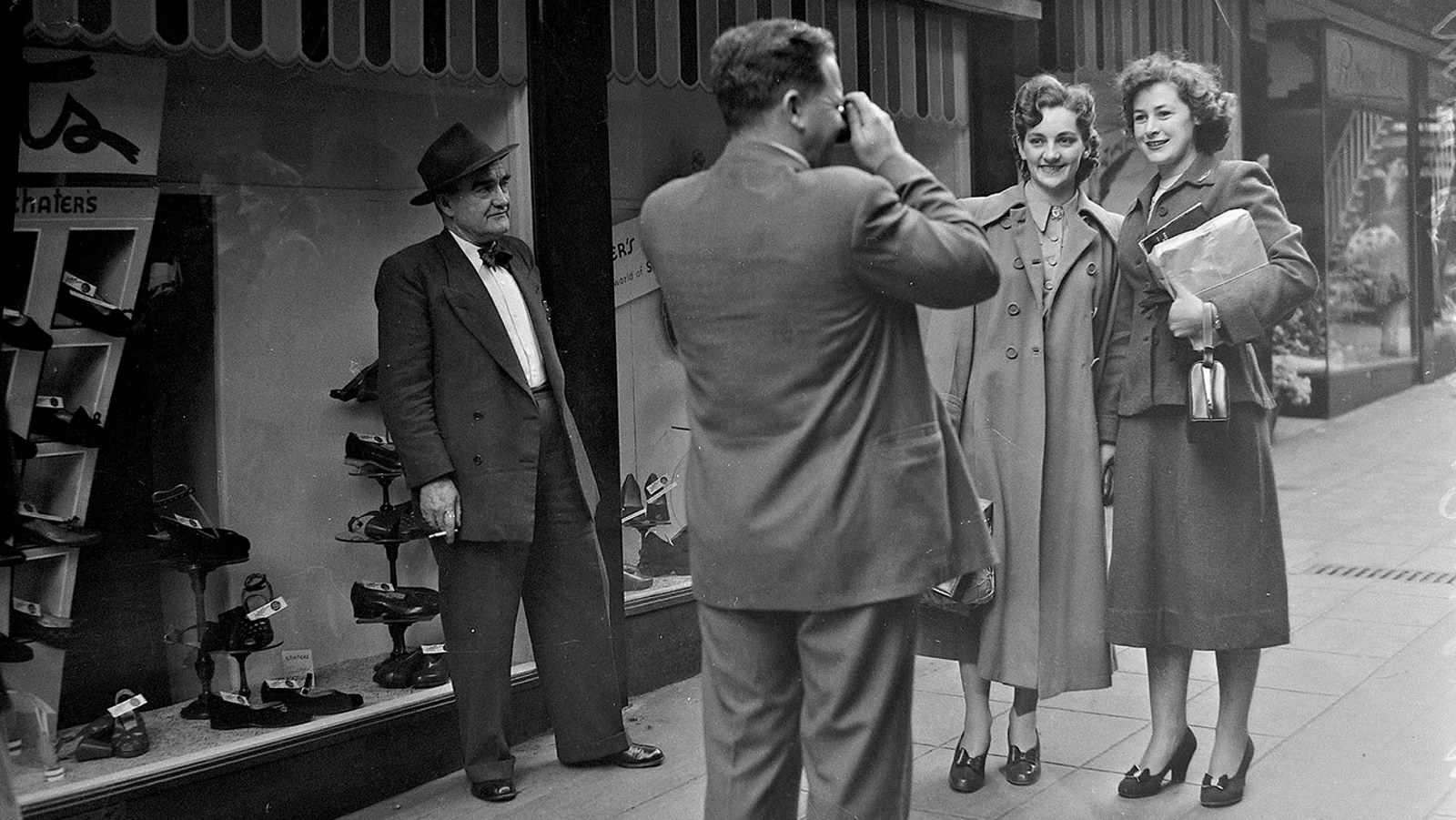
A popular nuisance – controlling the street photographers
By the mid-1930s the street photography ‘craze’ saw increasing numbers of photographers on Sydney’s streets – all competing for the best locations and the most promising marks
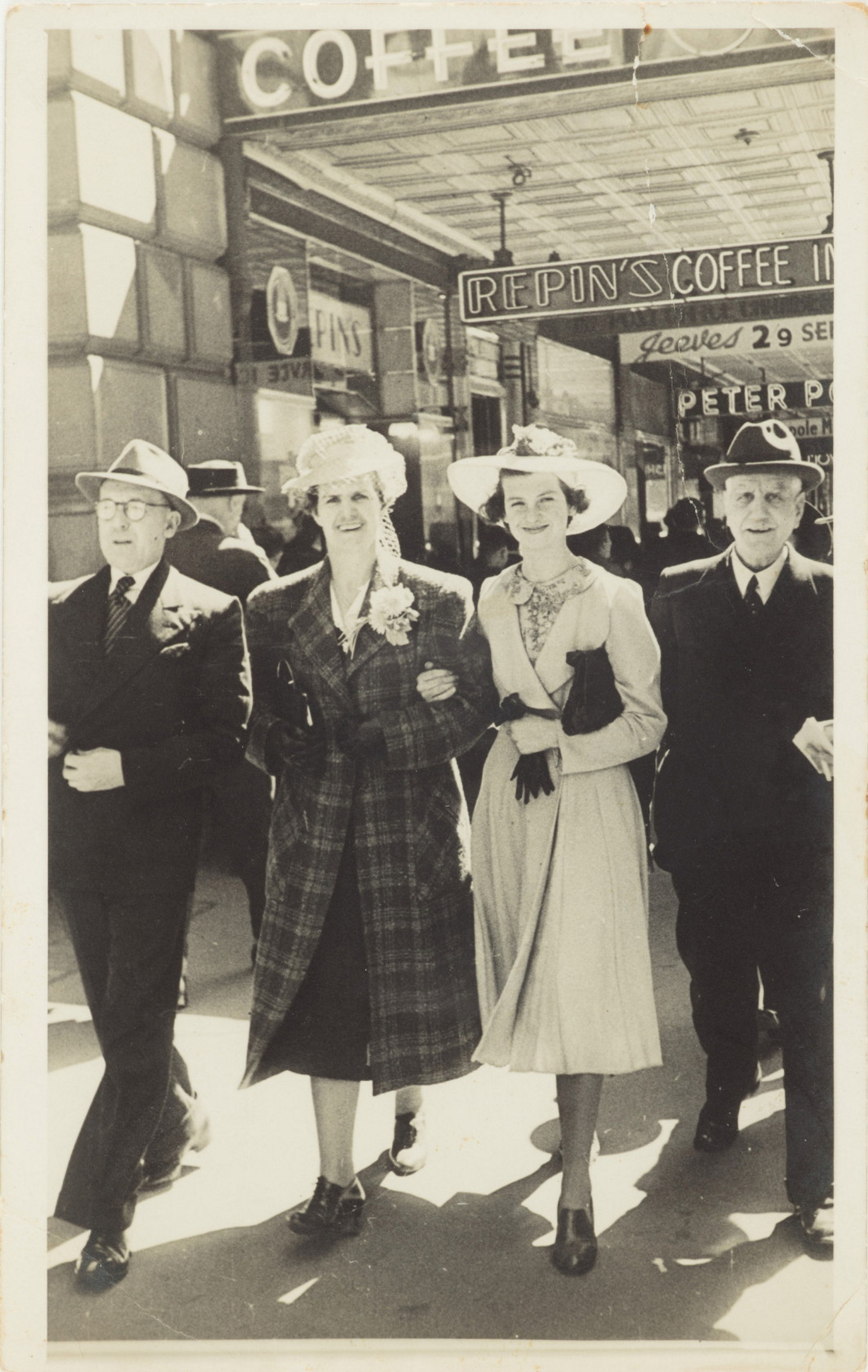
Signs of the times
In the background of many street photos are glimpses of Sydney’s architecture, from still-recognisable locations to popular landmarks of the day
Photo collections

A pictorial guide to identifying Australian architecture – photo collection
This collection of over 700 black and white photo prints was used to illustrate the book 'A pictorial guide to identifying Australian architecture' by Richard Apperly, Robert Irving and Peter Reynolds, first published in Sydney in 1989
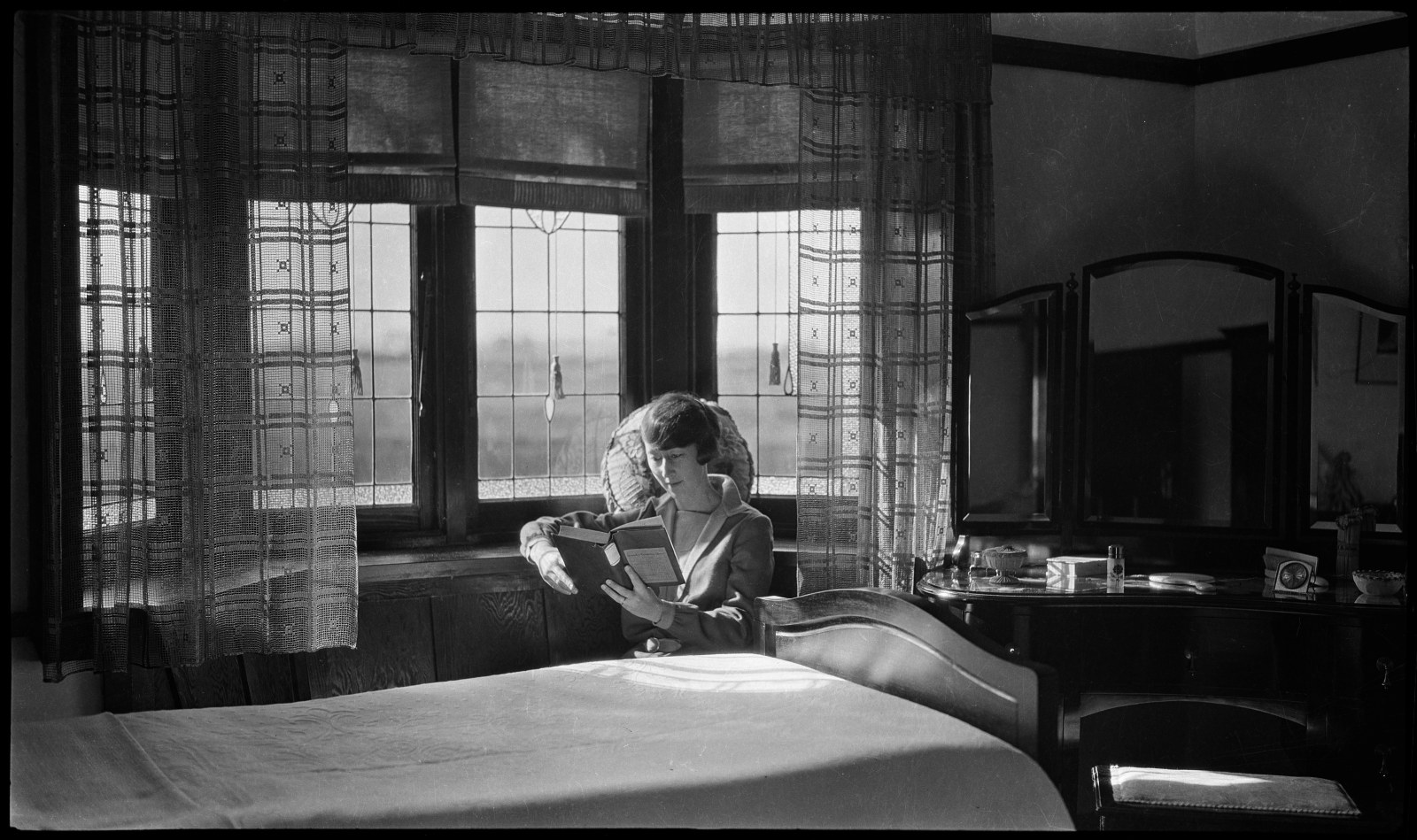
Alan Spearman Evans Collection
The Alan Spearman Evans Collection comprises over 2000 photographic images of houses, house interiors, garden landscapes and industrial workplaces in NSW

Barry Wollaston: historic buildings in the county of Cumberland (NSW), 1954
This collection consists of 232 photo negatives by architect and photographer Barry Wollaston of buildings in the Sydney region considered by the Royal Australian Institute of Architects in the early 1950s to be of architectural and historical value

Electricity Commission
These photos record the power generation and transmission assets of the organisation and document the working conditions and social events of its employees